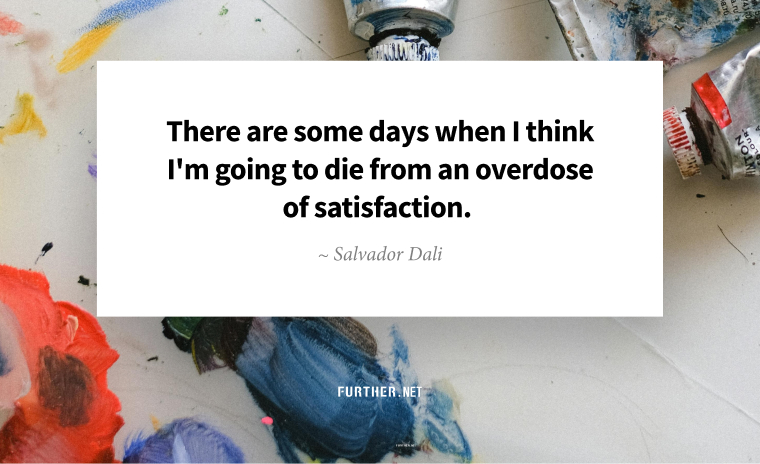What's Your Plan?

It's no longer news that a large chunk of Generation X won't retire at the conventional age. And for some of us, that's by design.
The message is now shifting from "Gen X can't retire" to "Gen X is going to work longer." Okay, makes sense... so let's look at the options.
We've already explored flextirement, which is really just "semi-retirement" with a rebrand. Another term you may hear is "soft retirement," but they all basically mean you shift to part-time work when you're in your 60s.
Combine this part-time status with work you can do remotely, and you can be a digital nomad or an overseas expat, which frankly would give you a more exciting life than the vast majority of retirees. Research shows that retirement mainly consists of watching television and worrying about money.
But again, that requires you to trust an employer not to "call you back to the office" like is happening to so many people now — essentially a post-pandemic bait-and-switch. Not to mention trusting an employer not to let you go completely, especially since we don't know what impact artificial intelligence will have on the job market in a decade or so.
The entire dynamic changes when you work on your own terms, whether as a consultant, freelancer, or digital entrepreneur. Even AI turns from a threat into a blessing when you replace human tasks with tech as the owner of the business.
The ascent of generative AI is making freelance work even more attractive. More than 6 in 10 (67%) said the emergence of such tech tools has made freelance life more appealing, while for those already freelancing, that number rises to 7 in 10 (74%).
Lots to think about. But you've got time. Just because you're not doing traditional retirement planning doesn't mean you don't need a plan.
Further reading:
Rethinking Retirement: Gen X’s Approach to Semi-Retirement and Freelancing (Entrepreneur)
Keep going-
Brian Clark
P.S. New to Further? Join us here.
To the VO2 Max
VO2 max refers to how well your heart performs during exercise. It's a way to measure your fitness, and it can help improve your longevity as well.
Your VO2 Max is Like a '401(k) for Longevity' (Business Insider)
75 the Hard Way
Two 45-minute daily workouts. One gallon of water. 10 pages of a nonfiction book. A diet. No “cheat meals” or alcohol. For 75 days. "75 Hard" is not easy, and that's because it's meant to build mental toughness.
75 Hard Has a Cultish Following. Is It Worth All the Effort? (New York Times gift article)
Memory Matters
Ever forget something and immediately blame it on getting older? The truth is, this is just how memory works - our brains are designed to forget. If you understand how and why you remember things, you’ll be better prepared to use your memory wisely.
How to Improve Your Memory for the Things That Matter (Greater Good)
The Early Bird Loses the Farm
One of the worst things that can happen to your retirement prospects is to get laid off for an extended time in your 50s. A close second is quitting early to take Social Security at 62 because you hate your job. Becoming your own boss solves for both scenarios.
Burned Out at Work? Before You Claim Social Security and Retire Early, Consider This
The Enduring Pleasure of Simple Satisfaction

By Trudi Roth
If you’re like me, you’re firmly in your 50s now. So, how’s it going on the upside of the “U-shaped happiness curve”?
You know, the other side of that seemingly interminable dip in life satisfaction that The Happiness Curve author Jonathan Rauch says you likely experienced from your 20s until it bottomed out at 47.2 years old (give or take).
So, are you always happy, peppy, and bursting with love? Or do you find yourself thinking happiness is overrated and the constant pursuit of it is dragging you down?
Maybe it’s just that you don’t truly understand the difference between happiness and life satisfaction. Let’s start there.
Whiny Happy People
You’ve heard all the pithy sayings about what happiness is, from a warm puppy to a journey, not a destination. All true, and also transient and unsustainable.
Research shows pursuing happiness can be paradoxical: the harder you push to achieve it, the more elusive it becomes. Plus, holding onto an expectation of what it should look and feel like can become a relentlessly depressing cycle.
In other words, if happiness is a feeling or a concept, it’s by definition fleeting. Life satisfaction, on the other hand, is, according to psychologist Dr. Jennifer Guttman, something you can attain by taking practical steps.
The answer is through action — living well and directing our energies toward finding the sustainable and satisfied life that is midway between excess and deficiency, between narcissism and neediness.
That seems like a lot to navigate, but happily, Dr. Guttman’s approach is straightforward.
Satisfaction Guaranteed
To go “beyond happiness” and enjoy your life consistently, Dr. Guttman recommends six core techniques:
-
Avoid assumptions: Take action based on facts vs. what you believe others feel about you. Evidence-based thinking also builds confidence and self-reliance.
-
Quit people pleasing: By prioritizing your needs over others, you’ll act authentically vs. out of fear, guilt, or obligation. This fosters feelings of self-worth and helps you create more meaningful connections.
-
Face your fears: It might seem counterintuitive, but facing fears and moving forward is a positive motivating factor. Plus, it builds your self-esteem.
-
Make decisions: While you can always make better decisions, the point is to simply take action without second-guessing yourself. This increases your self-efficacy and self-assurance.
-
Become a closer: This one you probably instinctively know: closing tasks (vs. starting them) is very satisfying. While it can be challenging (i.e., ending a relationship, quitting a job), it builds your self-confidence, resilience, and self-respect.
-
Self-reinforce: Give yourself props (and tangible rewards) for doing the first five techniques. Bonus: you’ll stop needing reinforcement from others and become a pro at self-praise.
Ironically, if you focus on life satisfaction, you’ll regularly experience more happiness. And that alone will be a joy to behold.
How To Go Beyond Happiness & Sustain Long-Term Satisfaction (MindBodyGreen)
further: flashback

Nine Inch Nails - Head Like A Hole
Pretty Hate Machine, 1989
Head Like a Hole was the last track Trent Reznor wrote for Nine Inch Nail's debut Pretty Hate Machine. It was an aggressive response to hearing that his record label didn't like the early version of the album. The lyrics make a whole lot of sense in that context. (YouTube)
further: sharing
Enjoy this issue? Please forward this email with friends or share on social media.
Thank you for sharing Further!
|

